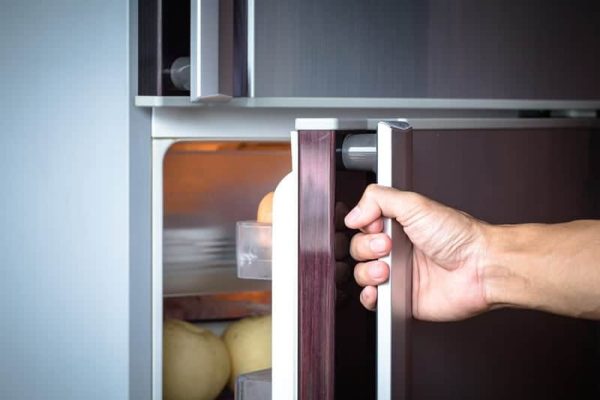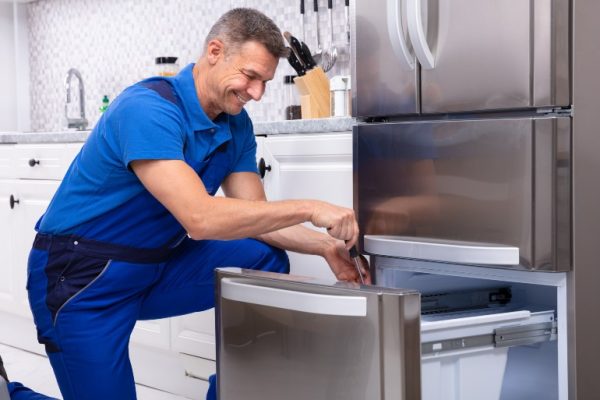Appliance repairs are often an unexpected financial burden. From refrigerators to dishwashers, the cost of repairing a major household appliance can quickly add up. As technology advances, many new appliances come with intricate designs and systems, making professional repairs even more expensive. However, with some smart strategies, you can significantly reduce these costs in 2024. In this article, we’ll explore several practical ways to save money on appliance repairs, helping you keep more cash in your wallet.
1. Regular Maintenance Is Key
The easiest way to avoid expensive appliance repairs is by maintaining your appliances regularly. Maintenance often involves cleaning, inspecting parts, and ensuring everything is functioning smoothly. For example, cleaning refrigerator coils, removing lint from dryer vents, or descaling a washing machine can significantly extend the lifespan of these appliances. Following the manufacturer’s recommended maintenance schedule can prevent small issues from becoming costly repairs.
Not only does this proactive approach reduce the likelihood of breakdowns, but it can also improve your appliance’s efficiency. Well-maintained appliances use less energy, which means lower utility bills—a double win for your finances.

2. DIY Repairs: When and How
If you’re handy and enjoy tackling small home projects, learning some basic appliance repair techniques can be a real money-saver. Many minor repairs are simple and don’t require professional help. Fixing a clogged dishwasher, replacing refrigerator door seals, or installing new washing machine hoses are tasks that you can handle yourself with the right tools and guidance.
Thanks to the vast availability of online tutorials and repair guides, you can easily find step-by-step instructions for almost any appliance. Websites, YouTube channels, and forums dedicated to DIY repairs are treasure troves of information. By investing time in learning a few repair basics, you can save hundreds of dollars in service fees.
However, be cautious. If the repair seems complex or involves electrical work, it’s often best to leave it to a professional to avoid damaging the appliance further or causing harm to yourself.

3. Shop for Affordable Replacement Parts
When an appliance breaks down, sometimes all it needs is a replacement part. Instead of opting for expensive OEM (Original Equipment Manufacturer) parts, consider shopping around for more affordable aftermarket parts. These parts are typically much cheaper and can be just as reliable.
Online marketplaces, local hardware stores, or specialty repair shops often sell these affordable parts. Before purchasing, ensure that the part is compatible with your appliance’s make and model, and check online reviews to verify the quality of the part. Sometimes buying a generic part can save you up to 50% of what you’d pay for the branded version.
4. Take Advantage of Warranty Coverage
Before you shell out money for repairs, check if your appliance is still under warranty. Many appliances come with a manufacturer’s warranty, which typically lasts for one to two years. Some credit card companies also offer extended warranty benefits when you purchase appliances using their cards, providing you with extra protection without additional costs.
If the appliance is under warranty, contact the manufacturer or retailer to schedule a repair service. Keep in mind that attempting to repair the appliance yourself while it’s under warranty could void the coverage, so it’s essential to follow the warranty guidelines closely.
Extended warranties, if reasonably priced, can also be worth the investment, especially for high-end appliances. Before purchasing an extended warranty, however, make sure to read the terms carefully to ensure it covers the types of repairs you’re most likely to need.
5. Compare Repair Quotes
When professional repairs are necessary, it’s a good idea to shop around and compare quotes from different service providers. The price for the same repair can vary widely depending on the company, location, and complexity of the issue. By getting multiple quotes, you can ensure you’re not overpaying for the repair.
Additionally, some companies may offer special promotions, discounts for new customers, or loyalty programs that can reduce the overall repair cost. Make sure to ask about any available deals when obtaining your quotes.

6. Build Relationships with Local Repair Technicians
Establishing a good relationship with a reliable local appliance repair technician can pay off in the long run. Independent technicians often charge lower rates than large repair companies, and by working with someone you trust, you’re less likely to be overcharged or pushed into unnecessary repairs.
If you use the same technician for multiple repairs, they may even offer loyalty discounts or more flexible pricing. Plus, having a go-to repair person can give you peace of mind, knowing that your appliances are in good hands.
7. Replace When Necessary
In some cases, repairing an old or severely damaged appliance may not be the most cost-effective option. If the repair cost exceeds 50% of the price of a new appliance or the appliance is nearing the end of its lifespan, replacing it may be a smarter financial decision.
Before making a decision, weigh the costs of the repair versus the price of a new model. Keep in mind that newer appliances are often more energy-efficient, which could save you money on your utility bills over time. However, it’s also essential to consider the environmental impact of replacing appliances too frequently.
8. Buy Used or Refurbished Appliances
If you find that replacing the appliance is the best option, consider purchasing a used or refurbished model. Many retailers offer gently used or certified refurbished appliances at a fraction of the cost of a brand-new model. These appliances often come with warranties and have undergone thorough inspections and repairs, ensuring that they are in good working condition.
Opting for a used or refurbished appliance can be an excellent way to save money while still getting a quality product. Make sure to buy from a reputable source and check the warranty details before making your purchase.
9. Stay Informed on Energy Efficiency Rebates

Many regions, particularly in the United States and Australia, offer energy efficiency rebates for upgrading to more efficient appliances. If you’re considering replacing an old, inefficient appliance, research any available rebates that could offset part of the cost. Not only can these rebates save you money upfront, but the new energy-efficient appliance will also help reduce your monthly utility bills.
Check with your local government or utility provider to see what incentives are available in your area.
10. Avoid Emergency Repair Costs
Emergency repairs often come with premium costs. If an appliance starts acting up, don’t wait until it completely breaks down before calling a technician. Early detection and repair can save you from expensive after-hours service fees and reduce the risk of further damage to the appliance.
Keep an eye on how your appliances are functioning, and at the first sign of trouble—whether it’s unusual noises, leaks, or poor performance—address the issue before it turns into an emergency situation.
Saving money on appliance repairs in 2024 doesn’t have to be difficult. By taking proactive steps like regular maintenance, DIY repairs, comparison shopping for parts and services, and knowing when to replace an appliance, you can reduce repair costs and keep your home running smoothly. Keeping your appliances in top shape not only saves you money on repairs but also ensures they last longer, providing better value for your investment.

Please read more articles, this is the content you need:
How to Find Affordable HVAC Repair Services Near You
When your heating, ventilation, and air conditioning (HVAC) system breaks down, it can cause significant [...]
Sep
How to Get the Best Warranty on Automotive Repairs
When it comes to automotive repairs, securing a solid warranty can save you a significant [...]
Sep
How to Save Money on Appliance Repairs in 2024
Appliance repairs are often an unexpected financial burden. From refrigerators to dishwashers, the cost of [...]
Sep
DIY HVAC Repairs: What You Should and Shouldn’t Do
Your HVAC (Heating, Ventilation, and Air Conditioning) system is essential for maintaining a comfortable indoor [...]
Sep